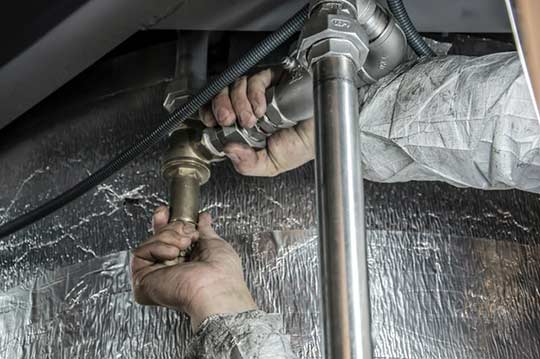“When should you replace the plumbing in your home?” Unless your home is new or recently built, this is a question you want to find answers to. This is because the countdown to the end of its lifespan is initiated the very minute a plumbing pipe is laid.
Pipes are constantly under threat from the water inside them and their environment’s physical, chemical, and biological agents. The actions of these elements are what cause leaks and other problems in your plumbing. They affect water pipes as well as drainpipes.
The longer a plumbing system has been in use, the greater the likelihood it will fail. Older plumbing systems are more fragile than new ones and need more care. If you do not know this about your home’s plumbing, says Keyrenter Richmond Management, you will struggle with avoidable problems.
When should you start thinking of replacing an old plumbing system? At what point does it make more sense to install a new system versus repeatedly fixing the old one? If you can answer this question correctly, you will save yourself a lot of frustration and a ton of money.
When should you replace your old plumbing?
There is no one-size-fits-all answer to this question. Every home’s plumbing is different because the factors that affect the plumbing vary. To answer the question, the following are the factors you need to consider:
The material of the pipes
If you have lead pipes in your plumbing, they should be removed immediately. Due to its toxicity (even in small amounts), lead has been banned from plumbing systems. Metal and clay pipes last shorter than plastic pipes, although polybutylene pipes do tend to leak.
The age of the pipes
Depending on the material, pipes can last from 20-100 years or more: brass (40-70 years); copper: (+50 years); galvanized steel (20-50 years); cast iron (75-100 years). Polyvinyl chloride or PVC pipes can last indefinitely. If there are metal pipes in your plumbing, the chances are high that they are due for replacement. If the home was built in 1970 or before, it’s probably time to replace the pipes with modern day materials.
The climate in your location
Metal pipes are particularly susceptible to the climate; the rate of pipe corrosion increases with the amount of moisture in the air or soil. Pipes in locations with highly acidic soils are also likely to damage quicker. Again, this is especially true for metal pipes. The acid in the soil corrodes the pipe or reacts with the material of the pipe to shorten its lifespan.
The amount of wear and tear
Wear and tear show up in different forms inside the plumbing. It could be rust within the pipes or sediment which has built-up over time and narrowed the diameter of the pipe. It could be rust on the outside of the pipe due to moisture in the environment. It could even puncture tree roots. If your pipes are visible and you can see flakes, rusting, and discoloration, they are probably worn out and need to be replaced.
Signs that it is time to replace your plumbing
If you are experiencing the following challenges in your home, your pipes may be due for replacement.
Low water pressure
Low water pressure could be a sign that your pipes should be replaced. This problem happens when debris narrows the pipe diameter until water no longer flows through it freely. But do note that there may be other causes of the low water pressure in your home.
Discolored water
If the water in your home is yellowish, reddish, or brown, it’s a sign that you have rust inside the pipes. A rusty water heater also causes water discoloration. If the source of the problem is your plumbing, you will see this discoloration in both cold and hot water.
Water with bad taste or odor
If the water in your home tastes or smells terrible, it could also be an indication that it is time to replace the pipes in your plumbing. The foul smell or taste could be the result of sediments or bacteria that has built up in the system.
Frequent leaks and strange noises
If you fix a leak in one part of the plumbing only for a leak to show up in another part of the system, it may be time to replace your plumbing. Also, if you hear clanking or rattling sounds from your pipes, it is a sign that your pipes need to be replaced.
Even if all these signs are present in your home, it is recommended that you get a local plumber to inspect the entire plumbing system – from the water meter to the point where your drainpipes meet the city sewers. The plumber can tell you if the entire system needs to be replaced or just a section of it.
